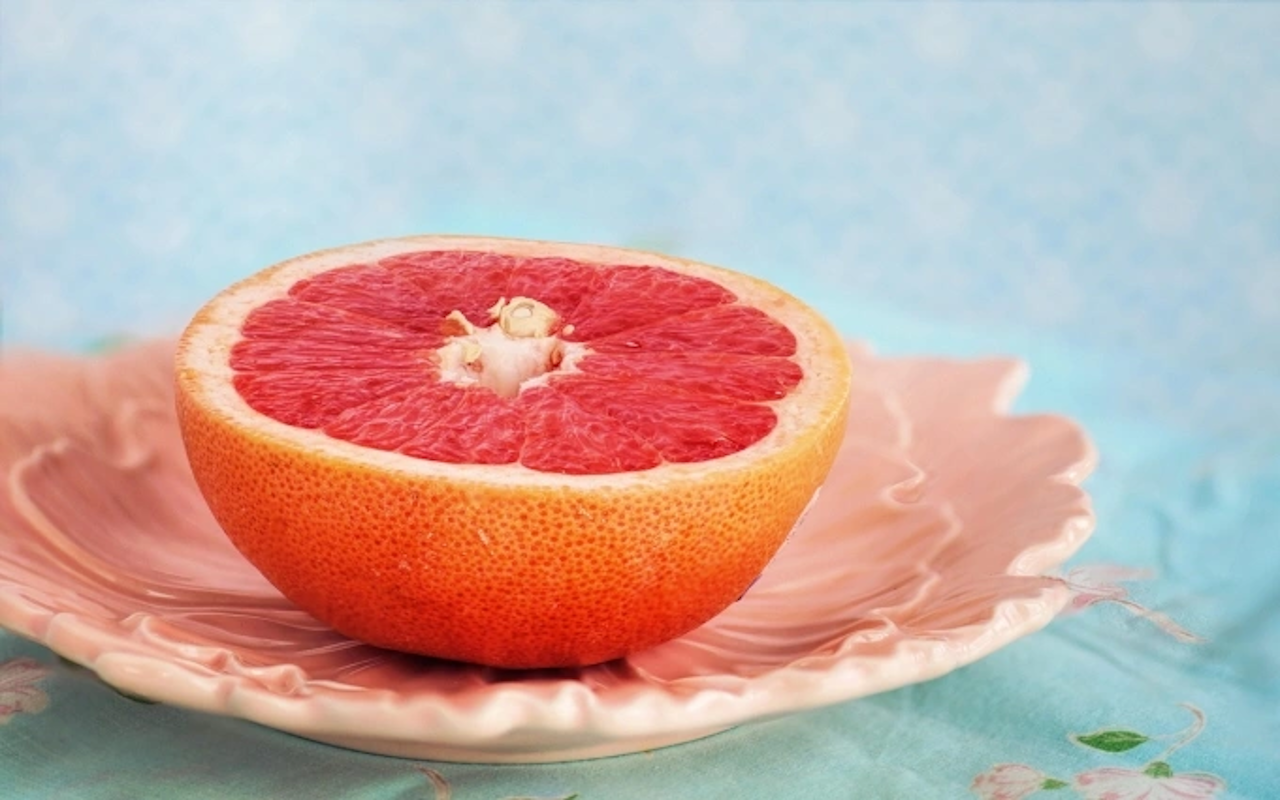The quest for a healthier body, particularly a flatter belly, often leads people down paths of restrictive diets and intense exercise regimens. However, nature provides a delicious and effective ally in this journey: fruit.
While no single food is a magic bullet, certain fruits stand out for their unique properties that can actively support the body’s fat-burning processes. These fruits are packed with essential nutrients, fiber, and beneficial compounds that contribute to satiety, regulate metabolism, and reduce bloating, all crucial steps in targeting stubborn belly fat.
As highlighted by The Times of India, fruits are naturally designed to support weight management. They are inherently “low in calories and high in fiber.” This combination is a powerful tool for weight control, as fiber helps to “control hunger by making you feel fuller for longer periods.” When you feel satisfied, you’re less likely to overeat or reach for unhealthy snacks. Moreover, the “natural sweetness” found in fruits offers a significant advantage.
It effectively “satisfies cravings for sugary snacks,” providing a healthier and more nutritious alternative to processed treats loaded with empty calories. By incorporating these natural wonders into your diet, you can actively “prevent the accumulation of belly fat and support your weight loss journey.” This approach offers a sustainable and enjoyable way to achieve your health goals.
Health experts have identified specific fruits that are particularly potent in this regard. This article will delve into nine such fruits, detailing how their unique nutritional profiles make them exceptionally effective for “reducing belly fat and supporting overall weight loss.” From their high fiber content to their specialized enzymes and metabolism-boosting compounds, these fruits offer a delicious strategy for anyone looking to trim their waistline and enhance their overall well-being.
1. Grapefruit: The Zesty Metabolism Booster
Grapefruit, with its distinctive tart flavor and vibrant hue, has long been associated with weight loss. This citrus fruit offers a powerful punch of beneficial compounds that can directly support your efforts to reduce belly fat.
Numerous studies suggest that grapefruit can help lower insulin levels. Insulin is a hormone that, when consistently high, can signal the body to store fat, particularly around the abdomen. By helping to regulate and lower insulin, grapefruit effectively “promoting weight loss” by encouraging the body to utilize fat for energy rather than storing it. Beyond its insulin-modulating effects, grapefruit’s nutritional composition further solidifies its role in fat burning. It is notably high in fiber, which contributes to feelings of fullness, and remarkably low in calories, making it an excellent choice for a calorie-controlled diet. These factors collectively “further support fat burning.”
But grapefruit’s benefits extend far beyond just weight management. As detailed by Healthline, this remarkable fruit contributes to overall health in multiple ways. It “may improve immune function” due to its high vitamin C content and other antioxidants, helping the body ward off illnesses. Its consumption is also linked to helping “prevent diabetes” by improving insulin sensitivity. Grapefruit can significantly “enhance heart health” by helping to lower cholesterol levels and regulate blood pressure.
Furthermore, its hydrating properties and compounds may “reduce kidney stone risk” by preventing the crystallization of minerals. Lastly, its rich antioxidant profile can “benefit skin health,” protecting against oxidative damage and promoting a healthy complexion. Incorporating grapefruit into your diet, perhaps as a breakfast staple or a mid-day snack, offers a delicious and multifaceted approach to improving both your physique and your overall health.
2. Pineapple: The Enzyme-Rich Digestive Aid
Pineapple, the tropical delight with its sweet and tangy flavor, is more than just a delicious treat. It’s a nutritional powerhouse, particularly renowned for an enzyme that makes it a formidable ally in the fight against belly fat.
The key to pineapple’s fat-burning potential lies in its abundance of bromelain, an enzyme that aids digestion and reduces bloating. Bromelain specifically helps break down proteins, making them easier for the body to absorb. Improved digestion means less undigested food sitting in the gut, which can contribute to a distended, bloated belly. By reducing bloating, pineapple helps to reveal a flatter stomach, while also ensuring your body efficiently processes nutrients.
Beyond this powerful enzyme, pineapple also boasts a high fiber and water content. Fiber contributes to satiety, helping you feel full and satisfied, thereby reducing overall calorie intake. The high water content keeps you hydrated, which is crucial for metabolism and overall bodily functions. These combined properties make pineapple “a great option for belly fat loss.”
The health benefits of pineapple, however, reach far beyond just digestive aid and weight management. As noted by WebMD, the impressive array of vitamins and minerals found in pineapple can profoundly impact your health. Its high vitamin C content, for instance, “may shorten viral and bacterial infections” and significantly “strengthen bones” due to its manganese content, which is vital for bone formation. Emerging research even suggests that pineapple’s antioxidants and anti-inflammatory properties “may help with cancer prevention” by combating free radicals and reducing cellular damage.
Furthermore, some studies indicate a potential role in “fertility by improving sperm quality,” highlighting its broad spectrum of health-promoting capabilities. Enjoying fresh pineapple as a snack, in smoothies, or as a vibrant addition to meals can be a delicious step towards a healthier, leaner body.
3. Watermelon: The Hydrating Weight Loss Ally
Watermelon, the quintessential summer fruit, is celebrated for its refreshing taste and hydrating qualities. Beyond quenching thirst, this juicy fruit offers significant advantages for those aiming to reduce belly fat and manage their weight.
Watermelon’s primary strength in weight management stems from its composition: it is remarkably low in calories and high in water content. Water makes up about 92% of watermelon, meaning you can consume a substantial volume of it for very few calories. This high water content is crucial because it “keeps you hydrated and full,” without adding significant caloric load. When your body is well-hydrated, its metabolic processes function more efficiently, and the sensation of fullness helps to curb overeating and snacking on less healthy options. These combined benefits make watermelon a highly effective food for “assisting with belly fat loss.”
The advantages of incorporating watermelon into your diet extend beyond its direct impact on weight. As reported by Medical News Today, watermelon provides a host of other health benefits. Its high water content is, of course, paramount for “hydration,” supporting every bodily function from nutrient transport to temperature regulation. The fiber and water also contribute to healthy “digestion and regularity,” preventing constipation and promoting a healthy gut.
Additionally, the vitamins and antioxidants found in watermelon, such as vitamin C and lycopene, can significantly “benefit skin health,” protecting it from sun damage and promoting a youthful glow. Its citrulline content may also promote better blood flow. Enjoying watermelon as a snack, in salads, or as a dessert is a delicious way to stay refreshed, hydrated, and on track with your weight loss goals.
4. Avocado: The Healthy Fat for Fat Loss
Avocado, often lauded as a “superfood,” stands out among fruits for its unique nutritional profile. While many fruits are low in fat, avocado is distinguished by being “rich in healthy fats.” This characteristic, combined with its substantial fiber content, makes it a powerful, albeit counterintuitive, ally in the quest for belly fat reduction.
The healthy monounsaturated fats in avocado are crucial for satiety. They help you feel full and satisfied after meals, which in turn “help control appetite and promote belly fat loss.” When you’re satiated, you’re less prone to unhealthy snacking or overeating, leading to a natural reduction in calorie intake. These fats also play a role in regulating blood sugar, preventing the spikes and crashes that can lead to increased fat storage. Beyond its direct impact on appetite, avocado’s high fiber content further contributes to fullness and supports digestive health, aiding in the efficient removal of waste and preventing bloating.
The benefits of avocado stretch far beyond its contribution to weight management. This nutrient-dense fruit is “also beneficial for gut health.” The fiber acts as a prebiotic, feeding beneficial gut bacteria, which is essential for a healthy microbiome. A balanced gut is increasingly linked to overall well-being, including immune function and even mood. Furthermore, the monounsaturated fats, along with potassium and other compounds in avocado, “may help reduce the risk of heart disease.”
They contribute to healthy cholesterol levels and blood pressure regulation, protecting cardiovascular health. Incorporating avocado into your diet—whether in salads, smoothies, or on toast—offers a delicious way to enjoy healthy fats, promote satiety, and unlock a wide array of health benefits that support your journey towards a flatter belly and a healthier life.
5. Kiwi: The Vitamin C and Fiber Powerhouse
Kiwi, the small, fuzzy, and vibrant green fruit, is a nutritional gem packed with components that are highly beneficial for overall health and, importantly, for supporting belly fat loss. Its rich nutrient profile makes it a smart addition to any weight management plan.
At its core, kiwi is “packed with vitamin C and fiber.” Vitamin C is a powerful antioxidant that plays a role in numerous bodily functions, including metabolism. The fiber content, meanwhile, is essential for digestive health. Together, these nutrients “aid digestion, regulate blood sugar, and support belly fat loss.”
Improved digestion means that food is processed efficiently, reducing the likelihood of bloating and discomfort. The fiber also helps slow down sugar absorption, preventing rapid spikes in blood glucose levels that can lead to fat storage. By promoting stable blood sugar and efficient digestion, kiwi contributes directly to a leaner midsection.
The positive impacts of kiwi extend to several other critical areas of health. It “may also promote heart health” due to its potassium content, which helps regulate blood pressure, and its antioxidants that protect against cardiovascular damage. Furthermore, the fiber and unique enzymes in kiwi like actinidin significantly “improve digestive function.” This enzyme aids in breaking down proteins, making digestion smoother and more efficient. Eating kiwi regularly can help prevent constipation and support a healthy gut environment.
Whether enjoyed on its own, added to fruit salads, or blended into smoothies, kiwi offers a refreshing and nutrient-dense way to enhance your metabolism, improve digestion, and work towards a flatter belly.
6. Apple: The Satisfying Fiber Champion
The humble apple, a staple in many diets, is far more than just a convenient snack. Its robust nutritional composition makes it an excellent choice for weight management and a key player in the effort to reduce belly fat.
The primary reason apples are so effective for weight loss is their dual punch of “high water and fiber content.” Apples are remarkably hydrating, and their significant fiber content, particularly pectin, expands in the stomach. This combination “helps you feel full longer,” drastically reducing the urge to overeat or snack on unhealthy items between meals. When you feel satisfied, your overall calorie intake naturally decreases, making apples an “excellent choice for weight management.” This sustained feeling of fullness is crucial for adhering to a calorie-controlled diet without feeling deprived.
Beyond its direct contribution to satiety and weight control, incorporating apples into your regular diet is linked to a broad spectrum of long-term health benefits. Regular apple consumption is associated with a “lower risk of chronic conditions such as diabetes, heart disease, and cancer.” The rich array of antioxidants, flavonoids, and other phytochemicals in apples contribute to these protective effects by reducing inflammation and oxidative stress.
Furthermore, the fiber in apples acts as a prebiotic, fostering a healthy gut microbiome, which in turn “promoting gut and brain health.” A healthy gut is increasingly recognized for its role in metabolism, immunity, and even cognitive function. Enjoying a whole apple with its skin on ensures you get the maximum fiber and nutrient benefit, making it a simple yet powerful addition to your daily routine for a flatter belly and enhanced overall well-being.
7. Pear: The Underrated Fiber-Rich Contender
Often overshadowed by other fruits, the pear is an unsung hero when it comes to dietary fiber and weight management. This sweet and juicy fruit is an excellent, yet often overlooked, choice for those aiming to reduce belly fat.
The core strength of the pear in weight loss lies in its abundance of fiber. Pears are particularly rich in both soluble and insoluble fiber, which work synergistically. This high fiber content plays a crucial role in appetite control; it “helps curb hunger” by creating a feeling of fullness that lasts longer. This satiety helps prevent overeating and reduces the temptation of unhealthy snacks. Moreover, pears are naturally “low in calories,” making them a smart and delicious addition to any calorie-conscious diet. The combination of high fiber and low calories makes the fruit “ideal for belly fat loss.”
Beyond its direct impact on hunger and weight, the pear offers a wealth of other health advantages. It is particularly “beneficial for treating diverticulosis,” a condition affecting the digestive tract, as the fiber helps promote regular bowel movements and maintain colon health. Regular pear consumption can also contribute to “reducing cardiovascular disease risk” by helping to lower cholesterol levels and manage blood pressure. The fiber and antioxidants in pears “encourage detoxification,” aiding the body in eliminating waste products and harmful toxins.
Furthermore, the antioxidants present in pears actively “fight free radicals,” which are unstable molecules that can cause cellular damage and contribute to chronic diseases, including certain cancers. Whether enjoyed fresh, sliced into salads, or paired with cheese, the humble pear is a versatile and powerful ally for achieving a leaner midsection and robust overall health.
8. Orange: The Zesty Source of Satiety
The vibrant and refreshing orange is more than just a classic source of Vitamin C. Its comprehensive nutritional profile makes it a valuable fruit for supporting belly fat loss and promoting overall health.
Oranges are “packed with vitamin C and fiber.” The significant fiber content, particularly pectin, contributes to its ability to promote satiety. This fiber swells in the stomach, creating a feeling of fullness that helps to “reduce cravings and promote a feeling of fullness.” By satisfying your appetite and curbing the desire for less healthy options, oranges directly “support belly fat loss.” This makes them an excellent choice for a snack or an addition to meals, helping to manage overall calorie intake.
The health benefits of oranges extend broadly across multiple bodily systems. The high vitamin C content is a powerful antioxidant that “protects cells from damage” caused by environmental toxins and free radicals. This vital vitamin also plays a crucial role in “aids collagen production for smoother skin,” contributing to skin elasticity and a youthful appearance. Furthermore, vitamin C significantly “improves iron absorption,” which is essential for preventing anemia and maintaining energy levels. Oranges also “boost immunity,” strengthening the body’s defenses against infections.
Their antioxidant properties help “prevent age-related vision loss” and actively “fight cancer-causing free radicals,” reducing the risk of chronic diseases. Enjoying a whole orange, rather than just its juice, ensures you receive all the beneficial fiber, making it a delicious and highly effective choice for both weight management and comprehensive health support.
9. Papaya: The Digestive Enzyme Powerhouse
Papaya, the sweet, tropical fruit with its unique flavor, is a true digestive champion. Its rich enzyme content makes it a particularly effective fruit for combating bloating and supporting efforts to reduce belly fat.
The primary reason papaya shines in the context of belly fat loss is its natural abundance of digestive enzymes. Chief among these is papain, a powerful enzyme that helps break down proteins and carbohydrates. By facilitating more efficient digestion, these enzymes “reduce bloating” and discomfort, leading to a flatter-looking abdomen. Improved digestion also means that nutrients are absorbed more effectively, while waste products are processed and eliminated more smoothly. These digestive benefits directly “support belly fat loss” by ensuring your digestive system operates optimally.
Beyond its remarkable digestive prowess, papaya offers a wide array of other health advantages. It actively “promotes heart health” due to its content of potassium, fiber, and antioxidants, which help regulate blood pressure and reduce cholesterol. The powerful anti-inflammatory compounds found in papaya “reduce inflammation” throughout the body, a key factor in preventing numerous chronic diseases.
Furthermore, the antioxidants, particularly lycopene and vitamin C, “protect skin from damage” caused by free radicals and UV exposure, promoting a healthy, radiant complexion. Incorporating fresh papaya into your diet, perhaps in smoothies, fruit salads, or as a standalone snack, provides a delicious way to enhance your digestion, reduce bloating, and contribute to a healthier, leaner physique.
Embracing Whole Fruits for a Healthier You
Incorporating these nine remarkable fruits into your daily diet offers a delicious, sustainable, and scientifically supported strategy to combat belly fat and enhance your overall well-being. Each fruit brings its unique blend of fiber, vitamins, minerals, and beneficial enzymes, all working in synergy to support your body’s natural fat-burning processes and improve metabolic health.
The consistent theme across all these recommendations is the importance of eating whole fruits, rather than juices. When you consume whole fruits, you ensure that you get the “full nutritional benefits, including fiber,” which is often stripped away during juicing processes. This fiber is absolutely “essential for weight loss and overall well-being” because it promotes satiety, stabilizes blood sugar, aids digestion, and supports a healthy gut microbiome.
By making conscious choices to include a variety of these fruits in your meals and snacks, you can create a diet that is not only delicious and satisfying but also actively contributes to a flatter belly, enhanced metabolism, and a more vibrant, healthy life. Start experimenting with these fruity powerhouses today and experience the sweet rewards of a balanced and nutrient-rich diet.








